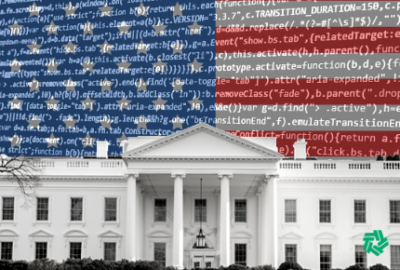4 agencies win $311M to modernize IT, cybersecurity
GSA, OPM, Education and DHS received funding for IT modernization projects with a focus on cybersecurity and improving citizen services.
The first seven of more than 100 proposals chasing some of the $1 billion windfall that Congress gave to the Technology Modernization Fund earlier this year have made it to the finish line.
The TMF Board announced the first tranche of awards worth about $311 million to four agencies for six projects today. The seventh project is classified and not included in this total.
“With this round of TMF awards, we are securing data and privacy protections for over 13 million students, advancing digital collaboration and data sharing across the federal enterprise, improving the authentication experience for millions of users with secure and equitable access to government services, and bolstering the security of critical shared services that support the federal government – and this is just the beginning,” wrote Clare Martorana, the federal chief information officer, in a blog post. “As Federal CIO, I’m empowering chief information officers across government to place our customers – our citizens – at the center of everything we do. This means we must understand what our customers need so we can adjust our delivery methods to improve our service. It also requires us to organize around users and services instead of information systems – and to partner with technologists across government when we need help. We can deliver digital products that delight our customers. With each new product we launch, our federal workforce can do less manual work and focus on the reason they came to government: To serve the American public.”
Each of these projects focus on either improving citizen services or addressing cybersecurity shortcomings, or both.
3 GSA proposals receive $230M in funding
The General Services Administration received three of the seven awards.
The board awarded GSA $29.8 million, which is handed out over several months or years, to modernize its network systems and implement an “advanced” zero trust architecture. The first transfer of money is $11.2 million.
“Using TMF Funds, GSA will advance their cybersecurity architecture by focusing on three blocks: Users and devices, networks, and security operations. Within the first block, GSA will replace directory designs to meet the newer demands of telework and a multi-domain, hybrid cloud architecture approach with virtualization adhering to enhanced security principles. GSA will also develop a modernized enterprise single-sign-on (SSO) to include new multi-factor authentication options,” the TMF website stated.
GSA’s second project is for Login.gov, which is received $187 million, including $27 million for the first transfer.
“The TMF funding will serve three purposes. First, it will increase cybersecurity identification and protection for current and future users. Second, it will add equitable identity verification and in-person options for vulnerable populations. Third, it will grow the Login.gov environment by reducing the barrier to entry for agencies to allow for Login.gov to increase usage to a higher percentage of citizen participation,” the TMF website stated.
GSA’s third project is an internal facing effort to transition the MAX.gov portal to a modern infrastructure. The board awarded $14.5 million for that effort and gave GSA $10 million in its initial transfer.
“The MAX.gov Transition Project Management Office (PMO) within Technology Transformation Service [at GSA] is charged with creating modern cloud-based authentication and collaboration products for government organizations on a fee-for-service basis. This will allow government organizations to continue to deliver on their missions when working across organizational boundaries,” the TMF website stated.
OPM, Education and zero trust
Similar to GSA, the Office of Personnel Management and the Education Department received awards from the board for zero trust implementation.
OPM will use its $9.9 million award to improve the cybersecurity of its human resource systems. It received $7.4 million in the first transfer.
“Using TMF funds, this project will implement zero trust solutions across the five main zero trust pillars: 1) Identity, 2) Devices and Endpoint, 3) Network and Environment, 4) Application Workload and 5) Data. This effort will reduce OPM’s attack surface and increase cybersecurity protections, visibility, and the resiliency of their services,” the TMF website stated.
The Education Department will use its $20 million award from the board to implement a zero trust architecture to improve the protections of student data it manages.
Education received $15 million in the first transfer.
“Using TMF funds, Education will enact a zero trust program over a span of two years that includes strategy, architecture, design, and an implementation roadmap. Education will also establish a catalog of services with Secure Access Service Edge (SASE) and security orchestration, automation and response (SOAR) technologies. The department will stand up an enterprisewide program management office dedicated to zero trust as well as adopt an advanced architecture across cloud-computing environments in accordance with the developed roadmap,” the TMF website stated. “By improving and modernizing cybersecurity technologies the department will provide more secure and less burdensome user experiences both for employees and the public.”
18 projects across 10 agencies
The sixth award went to the Department of Homeland Security to use data and technology to better secure the southwest border. The board gave DHS $50 million, of which $8 million came in the first transfer.
“The Southwest Border Technology Integration Program (TIP) will provide standardized and secure data sharing across the federal enterprise and throughout the immigration lifecycle to improve border flow and capacity management and increase the timeliness and fidelity of data used by decision makers. This project will connect disparate systems, improve cross-agency collaboration, and support data-driven decision-making,” the TMF website stated.
The TMF board awarded a seventh project, but offered no details other than to say it’s classified.
The TMF now has awarded 18 projects to 10 agencies since 2017 for a total of about $390 million.
Up until the American Rescue Plan Act, Congressional support for TMF has been tepid, allocating about $175 million over three years. But in the ARPA, the board received $1 billion, and with the combination of OMB’s rethinking the payback model, agencies swamped the board with more than 100 proposals worth more than $2.3 billion.
Copyright © 2024 Federal News Network. All rights reserved. This website is not intended for users located within the European Economic Area.
Jason Miller is executive editor of Federal News Network and directs news coverage on the people, policy and programs of the federal government.
Follow @jmillerWFED






